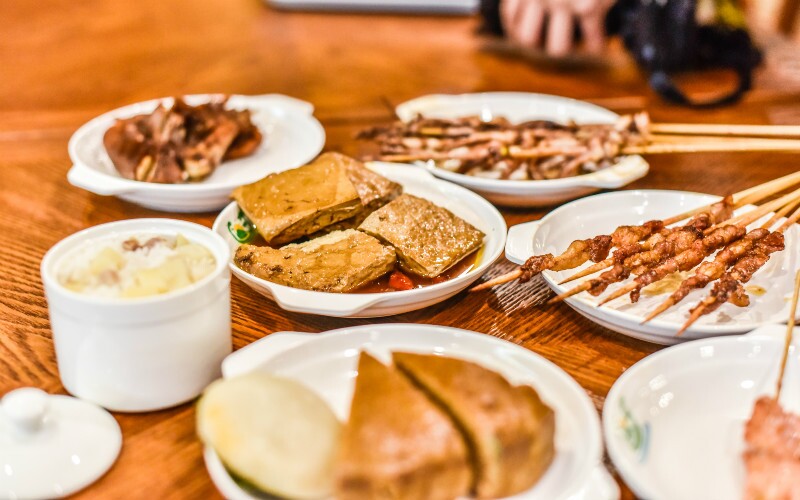20 Free Ways To Savor the Flavors of China
20 Free Ways To Savor the Flavors of China
Blog Article
Top 10 Tips To Save Money Etiquette In China
1. Tip: Start low and be respectful. Tip Offer between 50-70percent of the quoted price and then negotiate higher. You can show your seriousness if you are firm, but also courteous.Pro: It allows you to establish your position while not offending the seller.Con: Starting low on the price list can make buyers feel uncomfortable, particularly if you are selling items that have less margin.
2. Know the price of marketMake sure you don't overpay by researching the cost average of an item before buying.Pro: Stops you from being swindled and provides confidence when you negotiate.Con: It is time-consuming to research Particularly for unique or handmade goods.
3. Show Genuine InterestTip. Sellers will bargain if they believe you're serious about buying.Pro: Enhances the probability of a deal being successful by building rapport.Con: Excessive enthusiasm could signal a willingness to pay more and weaken your case.
4. Step Away StrategicallyTip: Walk away slowly in case the price doesn't fall. Sellers may call you back with a higher price.Pro The strategy works well to obtain the lowest price.The downside is that it can be counterproductive in the event that the seller is unable to cut the price of an item, especially when it's in high demand.
5. Learn Basic Mandarin PhrasesTip: Phrases like "Tai gui le!" (Too expensive!) or "Pianyi Yidian Ba" (Can you lower the price?) Do your best.Pro: It makes the negotiation more personal and may often soften the seller's position.Con: Using limited phrases in a more complicated negotiation might not be helpful.
6. Be patient and calmNegotiations may take some time. Be sure to avoid appearing anxious by retaining a calm demeanor.Pro: Sellers are more likely reward calm, persistent buyers by offering them better deals.Cons: Takes a lot of time and energy, particularly in busy markets.
7. Bring CashThere are sellers who will lower prices when you pay cash instead of using digital payment methods.Pros: Cash offers that are immediate can result in discounts, particularly with smaller vendors.Con: Carrying money in places that are crowded is risky because of pickpockets.
8. Discounts on Group ReservationsAsk for a discount if you're buying multiple items.Pro: Enhances bargaining power, which results in a better deal.Con: It requires you to purchase more things, which might not be the best fit for your needs.
9. Don't Be Afraid to Say NoTip. Refrain from negotiations and walk away if the vendor does not agree to reduce the price.Pro: Helps avoid buyer's remorse. It also helps ensure that you're staying within your spending limit.Cons: You might be missing out on a good you've always wanted.
10. Know When Not to BargainYou should not bargain at department stores or in expensive boutiques.Pro: Maintains respect for the culture and helps avoid embarrassment.Limitations to your negotiation options when you are in certain settings
Bargaining in China: Pros and ConsSaving Money: Negotiating can drastically cut the price of products.Cultural Experience: Bargaining provides an opportunity to learn about local traditions and customs.Personal Interactions - Builds an emotional connection with local vendors.Cons of Bargaining in ChinaIt can be a long process for new shoppers particularly.Language Barrier: Communication difficulties could arise even without a basic Mandarin.It can be stressful because It is not for everyone who likes to bargain.By following these guidelines, you will be able to navigate Chinese market with ease and even enjoy the art haggling! Have a look at the best from street food to fine dining in China for blog recommendations including authentic tastes of China, China culinary heritage, taste the regional flavors of China, the flavors of Chinese cuisine, Chinese cuisine you need to try, China flavorful food culture, journey through China food culture, explore China food scene, taste the regional flavors of China, discover China regional dishes and more.
Top 10 Tips For Fees Photography Rules And The Visit To Temples In China
1. Entertainer Fees: Most popular temples have a charge for entrance, which may range from Y=20 or more to 200 Y. Plan your trip ahead.You can plan for the payment ahead and avoid any unexpected costs.Con: Unexpected additional costs, such as charges for exhibits, can arise.
2. Bring cash or a digital PaymentCertain temples will only accept cash, or the most popular Chinese payment systems such as WeChat Pay or Alipay.Pro: Ensures smooth entry with no payment delays.Cons: There aren't many choices for those not experienced with digital payments.
3. Watch for signs that mention photography.Tips: Always look for posted signs indicating the rules for photography. There are many temples that prohibit photography in the sacred artifacts' sanctuaries or inside the temples.Pro: Stops accidental infringement of rules or breaking the law.Cons: The rules might vary between different areas of the temple. This is why it's important to pay attention.
4. Avoid Flash PhotographyAvoid using flash in places where photography is permitted, because it could harm artifacts and cause disturbance to worshippers.Pro: Preserves the temple's art and environment.Photos with low lighting are those that are less than optimal.
5. Respect Worshippers PrivacyA tip: Do not take pictures of people who are performing religious rituals, or praying, in the absence of their permission.Pro Displays an understanding of culture and respect for privacy.Cons: Limits your ability to capture the temple's atmosphere.
6. Follow Drone RestrictionsTips: Drone use is usually prohibited in temple areas. If you are planning to use a drone for aerial photography, make sure you check local laws.Pro -: Avoid paying penalties or confiscation.Cons: It limits the possibility of capturing distinctive angles.
7. Get Ready for Additional FeesA suggestion: Some temples charge an additional fee for professional equipment like DSLRs or tripods.Pro Tip: Ensure that you can capture high quality images legally.Cons: Add to trip expenses
8. Dress modestlyDress appropriately in temples. If you don't do this, you could be refused access or excluded to certain areas.Pro: It lets you know that you respect the religious setting and assists you in blending into the community.Con: May require additional preparation, especially in hot weather.
9. Beware of crowds when taking photosGo to the park in the early hours of the day or late in afternoon to avoid crowds. This allows you to take photos without getting in the way.Enhances the quality of experience and photos.Con: Requires adjusting your schedule, which might not be the most convenient option for you.
10. Ask Permission When UnsureThe temple staff is available to talk with you about any questions you have regarding the rules of photography.Pro: This helps you avoid making errors.Con: Language barriers might make communication difficult.
Follow Fees and Photographic RulesCultural respect: Respect the customs of the local community or practices.Artifact Preservation: This helps protect fragile artifacts and structures.Positive Experiences : Avoid confrontations with temple staff or worshippers.Legal Compliance: Helps to avoid penalties for infringements of photography laws.Cons of Following Fees & Photography RulesAdditional fees: Entry fees or photography permits can increase.Limitations on Creativity: These restrictions could prevent you from capturing that perfect photo.Language Barriers. Problems communicating or understanding local signs.It takes more time and effort to prepare for a research project.If you adhere to the photography and fee rules You will be capable of enjoying your trip and be respectful of China's magnificent temples. At the same time their cultural and spiritual authenticity will be maintained. Take a look at the most popular explore local Chinese cuisine for website advice including culinary experiences across China, uncover China food traditions, explore the best local eats in China, explore local Chinese cuisine, authentic tastes of China, from street food to fine dining in China, explore China riCh food history, a culinary journey through China, taste the best dishes across China, Chinese food culture guide and more.